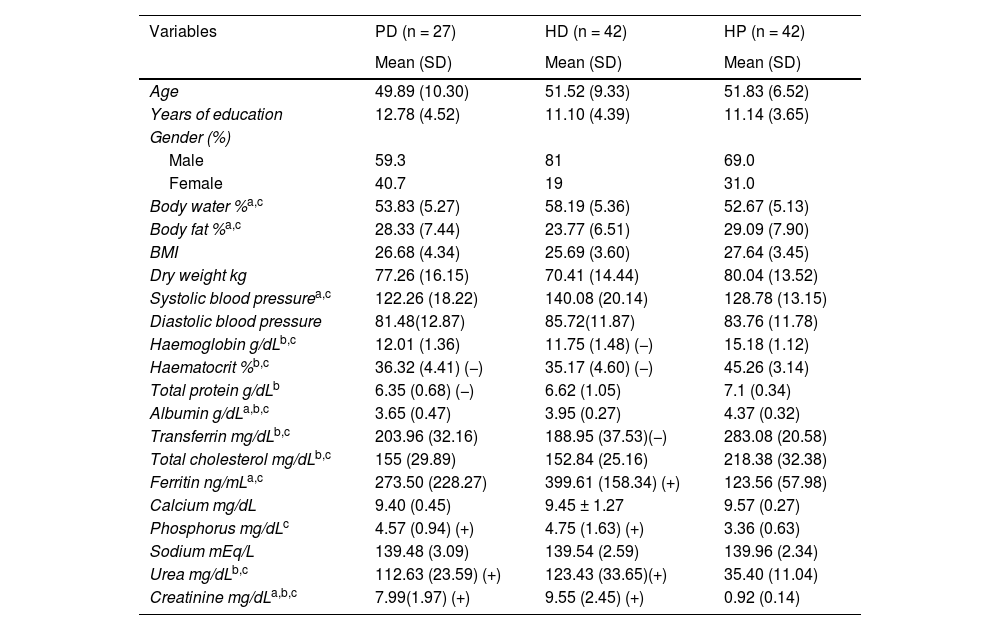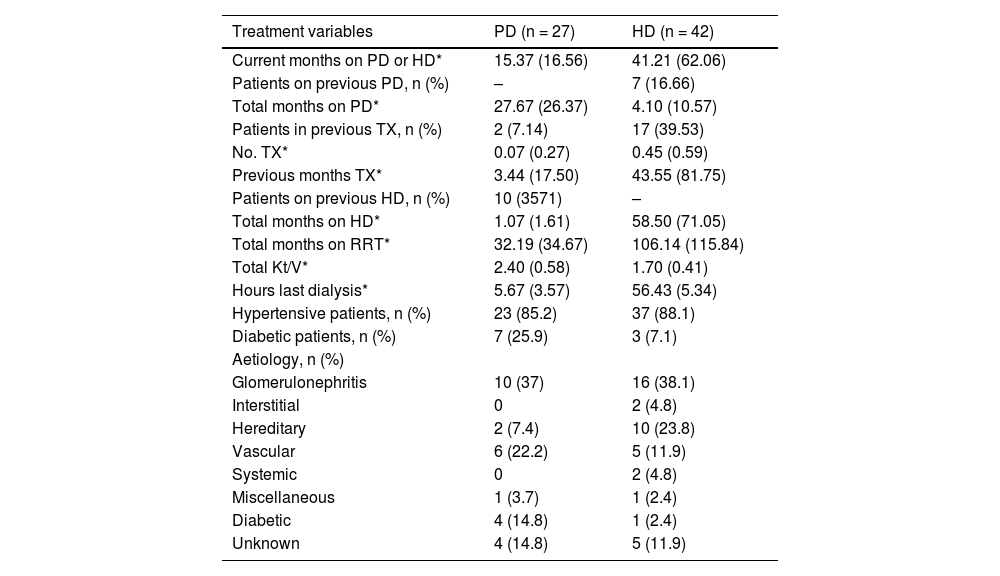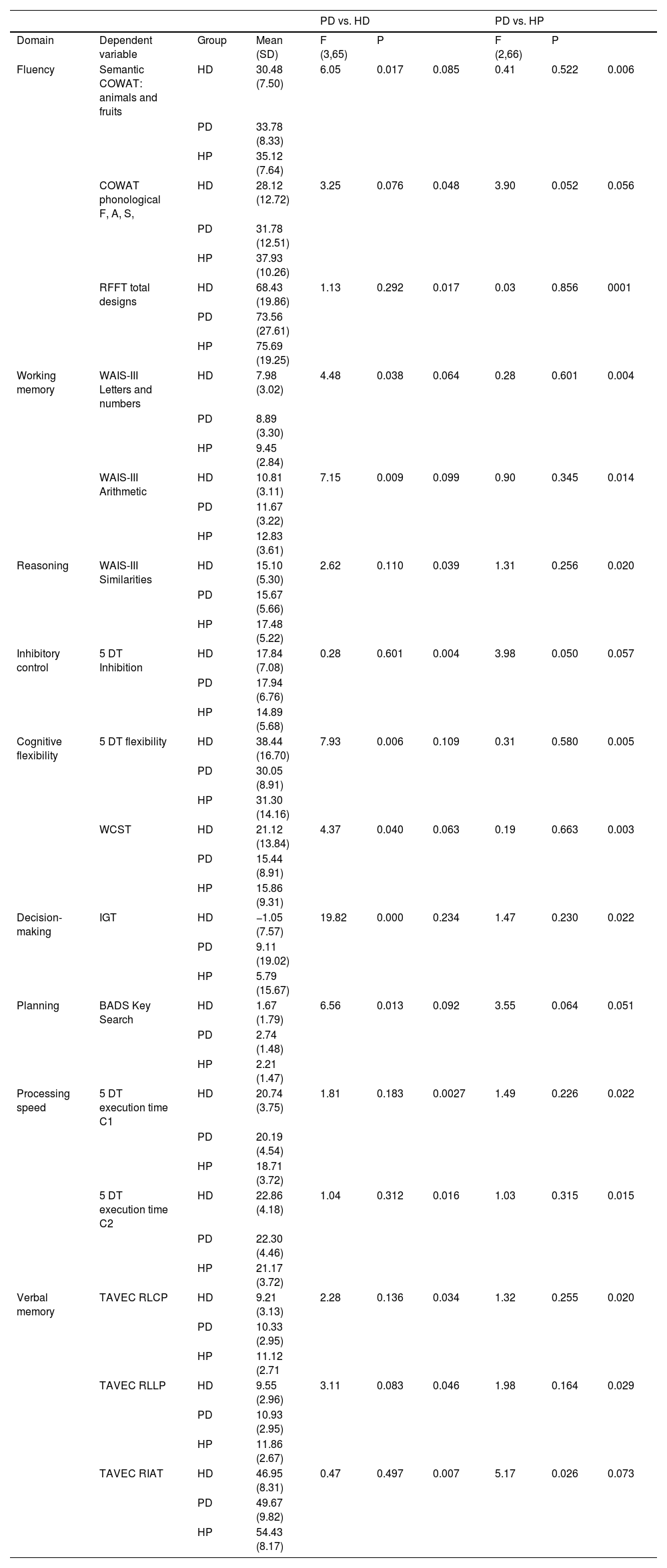Patients with chronic kidney disease on hemodialysis (HD) often have cognitive deficits. However, there are few studies that have examined the neuropsychological impairments of patients receiving peritoneal dialysis (PD).
MethodsExecutive functions, processing speed and verbal memory were assessed in 27 PD patients, 42 HD patients, and 42 healthy participants (HP). Systolic blood pressure and total time on renal replacement therapy (RRT) were controlled statistically. Associations between performance and clinical factors were analyzed using correlations and multiple regression.
ResultsThe DP group showed better performance compared to the HD group in verbal fluency, working memory, cognitive flexibility, planning and decision making. The DP group showed worse execution than the HP group in verbal inhibition and memory. Executive function scores were positively associated with total months on PD, total months on RRT, total months on HD, albumin, total cholesterol, and phosphorus, and negatively with ferritin.
ConclusionGlobal executive functioning was more optimal in PD patients than in HD patients. The results show the positive effect of PD on executive functions, which must be taken into account when choosing the TRS. The associations observed between biochemical factors and performance show the importance of maintaining an adequate nutritional status in these patients.
Los pacientes con enfermedad renal crónica en hemodiálisis (HD) suelen presentar déficits cognitivos. Sin embargo, existen pocos estudios que hayan examinado el funcionamiento neuropsicológico de los pacientes que reciben diálisis peritoneal (DP).
MétodoSe evaluaron las funciones ejecutivas, la velocidad de procesamiento y la memoria verbal en 27 pacientes en DP, 42 pacientes en HD y 42 participantes sanos (PS). La presión sanguínea sistólica y el tiempo total en terapia renal sustitutiva (TRS) se controlaron estadísticamente. Las asociaciones entre el rendimiento y los factores clínicos se analizaron mediante correlaciones y regresión múltiple.
ResultadosEl grupo DP presentó mejor ejecución respecto al grupo HD en fluidez verbal, memoria de trabajo, flexibilidad cognitiva, planificación y toma de decisiones. El grupo DP presentó peor ejecución que el grupo PS en inhibición y memoria verbal. Las puntuaciones en funciones ejecutivas se asociaron positivamente con los meses totales en DP, los meses totales en TRS, los meses totales en HD, la albúmina, el colesterol total y el fósforo, y negativamente con la ferritina.
ConclusiónEl funcionamiento ejecutivo global fue más óptimo en los pacientes en DP que en los pacientes en HD. Los resultados muestran el efecto positivo de la DP sobre las funciones ejecutivas, lo que debe tenerse en cuenta a la hora de la elección de la TRS. Las asociaciones observadas entre factores bioquímicos y rendimiento muestran la importancia de mantener un adecuado estado nutricional en estos pacientes.










